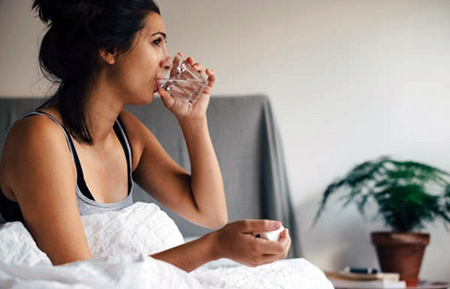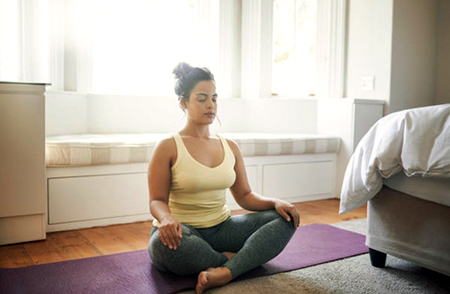Insufficient vaginal lubrication in women – what causes it and what can you do?


What is lubrication and why is it important?
Sexual pleasure can cause not only pleasant sensations, but also pain and discomfort. Sometimes partners even begin to think about their sexual incompatibility, but the reason for this may be such a seemingly simple reason as insufficient lubrication.
Lubrication is the natural moisturizing the vaginal mucosa during arousal. The release of lubricant occurs 10-20 seconds after the start of stimulation (psychological or physical), thus, the body makes it clear that it is possible to begin the introduction of the penis.
Lubrication is maintained throughout sexual intercourse and is more developed as orgasm approaches. In the same way as with a loss of excitement, lubrication disappears.
Excessive lubrication
The amount of natural lubricant depends on many factors:
- Woman’s temperament;
- Age;
- The degree of arousal;
- Phase of the menstrual cycle;
- The duration of the foreplay;
- No distractions.
A large volume of lubrication can only speak of one thing - a woman really wants her partner, her body is experiencing great excitement and is ready for sex. Therefore, if a woman has mixed feelings about the volume of her lubricant and does not know whether it is good or bad, you can assure her that this is the normal reaction of the body and such lubrication can only be envied.
Insufficient lubrication
Lack of natural lubricant can be a big problem for partners. Vaginal penetration becomes painful, frictions can be unpleasant, and there is a high risk of tissue damage (cracks).
Reasons for insufficient lubrication:

- Hormonal changes. One of the most widespread factors of vaginal dryness is the lowering of estrogen during menopause, pregnancy, after giving birth, and breastfeeding. Chemotherapy and other cancer treatments can also lower the level of estrogen either directly when the tumor growth is boosted by the hormone – by the drugs that cause artificial menopause, or indirectly by chemotherapy, radiation therapy, etc.
- Use of certain medicines. Antihistamines (allergy medications) as well as asthma medications lower bodily fluids secretion and can influence the amount of naturally produced lubricant by the vagina.
- Insufficient arousal. In some cases a woman can have low libido in general so in order to achieve arousal easier, she can use such medicines as Cialis (Femalefil) that make the genitalia more sensitive to stimulation due to the widening of the blood vessels only in this area.
- Irritants in personal hygiene means. Aggressive chemicals, colorants, perfumes commonly used in soap, foams, shower gels, and even lubricants for vaginal penetration can cause dryness. Many women have allergy on the soaps and lubricants of low quality. The washing means used for genitals must have ?? 4 -4,5 (the level of acidity). When you buy them, make sure to check whether they match this criterion or not.
- Anxiety, depression, stress, and other psychological factors can also cause vaginal dryness even if a woman wants intimacy.
Treatment and prophylaxis of vaginal dryness

The treatment o vaginal dryness depends on the reason that caused it. Thus, it is crucial to go to a gynecologist and do all appointed tests to find out the underlying cause.
For women with lowered level of estrogen for whom its elevation is not contraindicated (for instance, it is prohibited to raise estrogen and take medicines that raise it in hormone-dependent cancer), medicines that elevate its level are prescribed. The use of estrogen in topical preparations can be prescribed even for women who do not have menopause or other conditions for its lowering because the hormone better than anything else restores the natural vaginal functions and regenerates its protective layer.
If the problem turns out to be caused by psychological problems, stress, exhaustion, and so on, it is recommended to start visiting a psychotherapist to find out the root cause of sexual dysfunction especially is vaginal dryness is associated with low libido (sex drive).
There are also other symptomatic means that can relieve pain, moisturize, and calm the vaginal mucosa during intercourse. There are different lubricants that are basically moisturizing gels. But make sure to chose them carefully or better consult your gynecologist. The best option is a water-based, correct pH gel without fragrance, coloring, and parabens. Such lubricants can not only make intimacy more pleasurable but also create a vaginal flora unsuitable for pathogenic bacteria (if they have the right pH).
Stay away from lubricants with other than transparent color, fragrance, and glycerin. They can only aggravate the unpleasant sensations and even promote the development of fungal infection.
Other methods of prophylaxis of sexual dysfunction/vaginal dryness in women

- Start doing physical exercises of your choice at least thrice a week;
- Eat healthy food, keep a diary to find out what food causes any discomfort (you can find out that some types of food can be associated with dryness);
- Stay hydrated. Drink at least 1.5 liters of clear water every day besides coffee, tea, and other beverages. You should also pay attention to how much water you drink when you drink alcohol. Alcohol causes dehydration which can also result in vaginal dryness, so make sure you drink water when drinking alcohol.
- Check the composition of the hygienic means you use for the genitals, make sure they are clear, have no or mild fragrance, and pH of 4 -4,5.
- Do not overlook petting and foreplay – oral sex, touching, masturbation, kissing, and so on, enhances the blood inflow into the genitalia which is crucial for the promotion of natural lubrication. Also, frequent sex and arousal increases the natural level of estrogen which promotes normal level of natural lubrication and elasticity of the vagina.
- Do Kegel exercises for vagina – this will also improve the blood flow into the pelvic area and promote lubrication.
- You can use natural means that can work as lubricants – coconut oil, aloe gel. But keep in mind that they are not advised to be used with a condom.
- Use non-prescription medicines that can improve blood flow in the genitalia. The drug called Femalefil based on Cialis is made for women who for some reason find it hard to get aroused, achieve an orgasm, or have poor vaginal lubrication. The same medication is used also for men with erectile dysfunction in whom the improved blood flow in the genitalia results in erection. The medication is use by one pill 30-40 minutes before intimacy and has the effect for 36 hours (the optimal effect is achieved within the first hours). You can read more information about the drug and buy it on the product’s page of RXShopMD.
Medications that can be used to improve vaginal lubrication
If you buy a lubricant or other means but for some reason don’t feel comfortable with it, change it. You know your body better than anyone and your body knows what’s best for you.
If health problems are excluded, there are no other problems that interfere with the natural production of lubricant, then a psychological factor remains.
What does this mean? This means that such a woman needs more time for arousal, more pleasant words and caresses, foreplay should occupy 80% of all intimacy and in no case go on to sexual intercourse until the woman's vagina is moisturized naturally.
Remember to talk to your partner about your emotions, sensations, including discomfort during intimacy. It is important to communicate to ensure that your partner understands you needs and be gentle and more attentive to foreplay to help you relax, get sufficiently aroused, and enjoy intimacy instead of tolerating it. If it is not helping, consider going to a psychologist or even better, couple’s counseling at a psychologist or sexologist. You deserve and can enjoy intimacy and you can definitely find the solution!
Post by: John Johansson, M.D., sexologist, Amsterdam, Netherlands
(Updated at Apr 14 / 2024)
Femara articles:
Some of the trademarks used in this Web Site appear for identification purposes only.
All orders are reviewed by a licensed physician and pharmacist before being dispensed and shipped.
The statements contained herein are not intended to diagnose, treat, cure or prevent disease. The statements are for informational purposes only and is it not meant to replace the services or recommendations of a physician or qualified health care practitioner. If you have questions about the drugs you are taking, check with your doctor, nurse, or pharmacist.